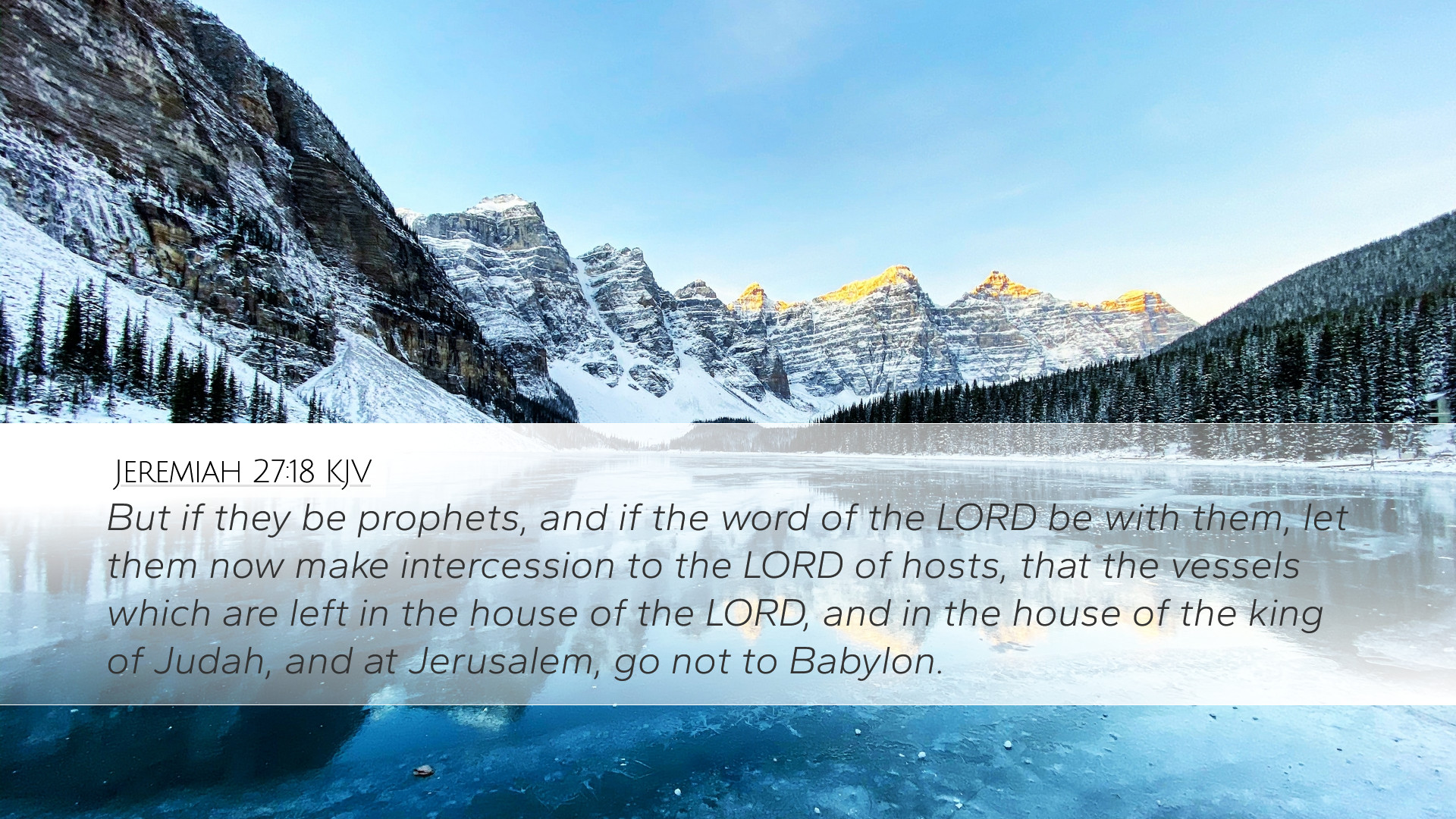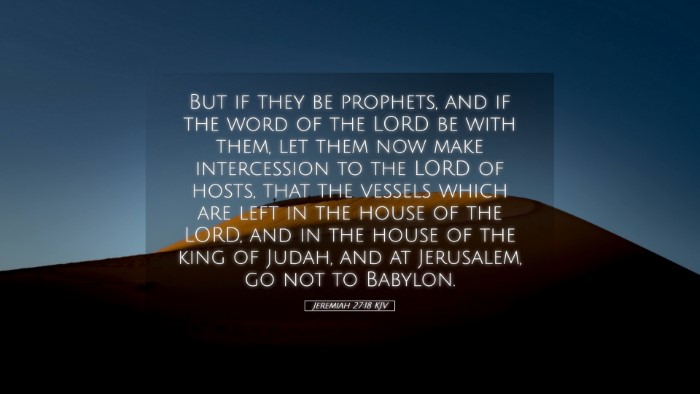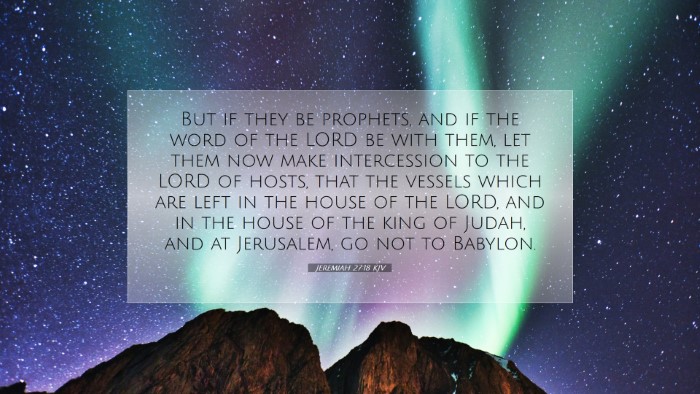Bible Commentary on Jeremiah 27:18
Verse Context: Jeremiah 27:18 reads: "But if they be prophets, and if the word of the LORD be with them, let them now make intercession to the LORD of hosts, that the vessels which are left in the house of the LORD, and in the house of the king of Judah, and at Jerusalem, go not to Babylon."
Insights from Matthew Henry
In his commentary, Matthew Henry emphasizes the critical condition of the exiled Israelites and the authenticity of the prophets amid their distress. He notes that God challenges the false prophets to prove their legitimacy by interceding for the temple treasures. Henry elucidates the gravity of their task: If they truly were sent by God, they should demonstrate their authority through prayer and divine intervention.
Key Insights:
- Authenticity of Prophets: Henry stresses the necessity for true prophets to exhibit the divine backing through tangible actions such as prayer.
- Intercession Importance: Interceding for the treasures of the temple signifies a deep concern for the sanctity and well-being of Israel's worship and heritage.
- God's Sovereignty: The verse encapsulates the theme of God’s control over nations and the fate of His people, reflecting His providential care even in dire circumstances.
Insights from Albert Barnes
Albert Barnes provides a systematic understanding of this verse, associating it with the broader narrative of Judah's impending exile. He interprets Jeremiah's challenge as a rhetorical strategy to expose the falsehood of the prophets who claim peace and security during a time of impending judgment.
Key Insights:
- Challenge to False Prophets: Barnes highlights that the challenge is not merely rhetorical but serves to unmask the false prophets who mislead the people.
- Divine Will: He points out that true prophets would understand God's will regarding the future of the temple treasures and would seek God earnestly for protection.
- Call to Action: The exhortation to "make intercession" emphasizes a active response to the call of God, serving as a reminder for contemporary believers to pray earnestly for their spiritual heritage.
Insights from Adam Clarke
Adam Clarke offers a more detailed explorative analysis, likely considering historical and linguistic contexts. He remarks on the juxtaposition of power and prophetic authority, emphasizing that the true role of a prophet is to be a mediator between man and God, especially when facing calamity.
Key Insights:
- The Role of Prophets: Clarke underscores that a prophet's role is to guide people in hope and intercession, especially during crises.
- Historical Context: He connects the passage with historical events leading to the Babylonian captivity, which serves to enrich the understanding of the dire warnings given by Jeremiah.
- Spiritual Warfare: The challenge posed to the prophets illustrates a broader theological truth regarding interceding for God's people in the face of opposition and threat.
Theological Implications
Jeremiah 27:18 poses significant theological implications, especially in the context of prophetic ministry and intercession. The verse serves as a reminder that the role of a prophet is not only to proclaim God’s word but also to act as a mediator, calling on God to intervene in a world wrought with chaos and uncertainty.
Additionally, it reinforces the truth of God’s governance over nations and His people. The assurance that God sees and will respond to true intercession offers comfort to believers in all eras, encouraging them to engage deeply in prayer for their communities and the preservation of their spiritual inheritance.
Conclusion
In summation, Jeremiah 27:18 invites readers into a profound reflection on the responsibilities of prophetic figures, the importance of prayer, and the compelling sovereignty of God during tumultuous times. The interplay between divine authority and human intercession remains a central theme for theology, pastoral care, and Christian life today.


